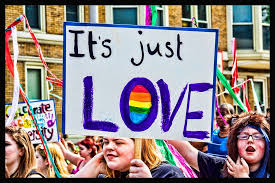UNHCR Calls for Enhanced Protection of LGBTIQ+ Refugees Against Homophobia, Transphobia, and Biphobia
UNHCR also expressed concern, shared by other UN agencies, regarding recent regressive legal and policy measures in some countries targeting LGBTIQ+ individuals.

Today, on the International Day Against Homophobia, Transphobia, and Biphobia, the UN Refugee Agency (UNHCR) reflects on the immense struggles faced by LGBTIQ+ individuals forced to flee persecution and discrimination based on their identity.
LGBTIQ+ asylum seekers, refugees, internally displaced people, and stateless individuals often endure severe challenges and threats in their home countries, including discrimination, prejudice, violence, and obstacles in accessing assistance and opportunities for resilience and solutions.
"Discrimination and stigma are widespread, and those identifying as LGBTIQ+ are frequently targeted, harassed, ostracized, or subjected to appalling violence. Many are forced to flee for their lives, seeking international protection," stated UNHCR.
However, seeking safety in other countries does not always guarantee security. Many LGBTIQ+ refugees face homophobic and transphobic violence in host countries, which can impede their right to seek asylum and access necessary services. These risks are often compounded by xenophobic hostility, precarious legal statuses, socio-economic marginalization, isolation from support networks, and acute emotional distress.
Instances of marginalization and hostility toward LGBTIQ+ individuals in various displacement settings have been observed over the past year, a situation UNHCR insists must end.
UNHCR also expressed concern, shared by other UN agencies, regarding recent regressive legal and policy measures in some countries targeting LGBTIQ+ individuals. In some places, LGBTIQ+ identity remains illegal and punishable by severe penalties, including death. Furthermore, organizations led by and working with LGBTIQ+ individuals are under scrutiny or outlawed.
As stated in Article 1 of the Universal Declaration of Human Rights, "all human beings are born free and equal in dignity and rights." No one should be denied fundamental human rights, including the right to seek and enjoy asylum, due to their identity. Hatred, misinformation, hate speech, violence, discrimination, and exclusion must not be allowed to persist.
UNHCR remains committed to enhancing the protection of forcibly displaced and stateless people of diverse sexual orientations, gender identities, gender expressions, and sex characteristics. The agency pledges to continue partnering with local LGBTIQ+ organizations, including those led by displaced individuals, to safeguard the rights and safety of those forced to flee and ensure their inclusion in host communities. This includes designing and implementing services that are safe and inclusive of the diverse needs and priorities of LGBTIQ+ individuals.
UNHCR will continue to work with States and global activists to pursue solutions for LGBTIQ+ refugees and will sensitize its staff and partners through capacity development initiatives in cooperation with LGBTIQ+ organizations. The agency also continues its cooperation with the Independent Expert on SOGI and other UN Agencies to mobilize solidarity on the plight of LGBTIQ+ persons in forced displacement.
"No one should be forced to flee. But if it happens, no one – including those most at risk, like LGBTIQ+ individuals – should be left behind. They must feel involved, included, and protected, wherever they are," emphasized UNHCR.










